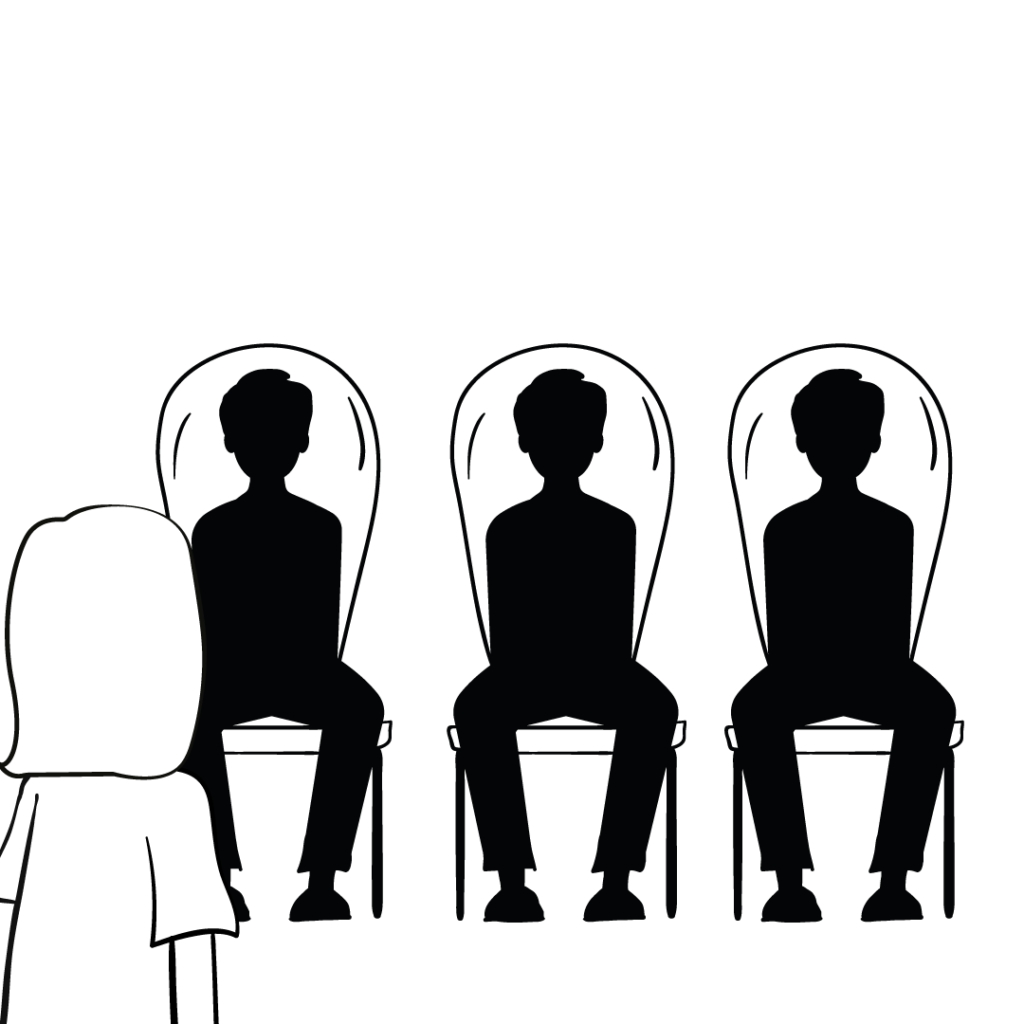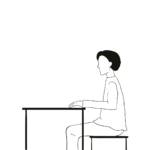WOMEN’S INCLUSION IN LOCAL LEVEL COUNCILS
Participation of women in village councils in one of the first levels where women should be committed so that it’s ensured that their needs and priorities are being addressed.
Illustration: Argjira Kukaj

The equal access of men and women to decision-making is one of the fundamental conditions of democracy. While the representation of women and men in every level of governance and decision-making is one of the key factors that enables gender equality. Even though in Kosovo, according to the Balkans Policy Research Group (BPRG) “politics continues to be considered a field dedicated to men. Gender prejudices, the general belief that men are better leaders and the lack of political support are some of the reasons that make it impossible or hinder a lot in promotion of women in decision-making positions”.
Even though the legal framework in Kosovo is one of the most advanced, including here the Law for Gender Equality which strives achieving gender equality and also promotes and protects the rights of women and men, in reality there’s still a low scale of participation of women in politics and in decision-making processes, on a state and municipal level.
There’s especially a lack of participation of women in village councils, regardless of the fact that women’s participation in processes of local decision-making is very important in offering a contribution to the community and in other commitments that are of interest to the citizens.
Village councils act as informal inter-connected centers through institutions of local governing and civilians. Based on the platform “Wide participation for good governance”, which was produced from a need in Kosovo to bring local decision-makers closer to citizens to promote stable governance, brings a good explanation on how the creation of cooperative forms is made through villages, settlements/communities and urban neighborhoods which is adjusted through the Administrative Instruction of MAPL nr.2008/08, “for the organizing and cooperation of the municipality with villages, settlements/communities and urban neighborhoods, while each municipality through its own set of rules treats the issue in more detail regarding this administrative instruction” It’s said there that local councils can have from 5 up to 8 members.
“But the correct number is set by the residents of the village, neighborhood or settlement that are present in the electoral gathering. The gatherings are led by someone chosen from the citizens themselves, while candidates are residents who candidate as civilians and not in the name of a political party. The leader is chosen from the young chosen members who have gained the most votes. The mandate of councils is usually 3 years”, it’s written in “The wide participation for good governance”.
The role of local communities, neighborhood or village councils are the best form of organizing certain communities in a way so that they impact in the municipality’s politics. But as a considerable cultural worry is the inclusion of women in village councils, which is also one of the challenges that preoccupies our society in current days.
The lack of balanced gender representation in local and village councils can also be there as a result of the patriarchal mentality where men are expected to be active in the public domain, whereas women are expected to be active in the private domain. According to BPRG, “unpaid labor- maintaining the home and caring for family members- and the lack of daycare centers for children is also a contribution to placing women and men in a very unequal relationship as far as available time for dedicating to politics and public commitment goes.” So, women can’t commit as much as they should in other activities such as village councils, something that limits their impact. Such an example can also be taken in the Municipality of Drenas, which in 44 of its villages, doesn’t even have one woman’s name, at least of some village in the official list of village administrators. So there is not even one woman as a representative.
Participation of women in village councils in one of the first levels where women should be committed so that it’s ensured that their needs and priorities are being addressed.
The Kosovar Gender Studies Center in the research study “Women’s Participation in Decision-making in Kosovo” states that the growing participation of women in decision-making contributes to the positive transformative processes for society, such as changing laws, politics, services, institutions and social norm.
So, “it’s important to ensure that women’s voices are heard about the decisions that touch on their lives, their families’ lives and the wider community. These decisions impact women as much as they impact men. So, women should be included in decision-making in every field and should have equal power and numbers to men. It’s a responsibility of the government to ensure that women are provided with opportunities to take part in all levels of decision-making and for institutions to represent a diversity of the people and communities they represent”.
Representation of women’s needs by women themselves is the best teller of justice, adequate addressing of requests and respecting women’s rights.
About the author: Albërije Makolli, 24 year old, is from Drenas.


